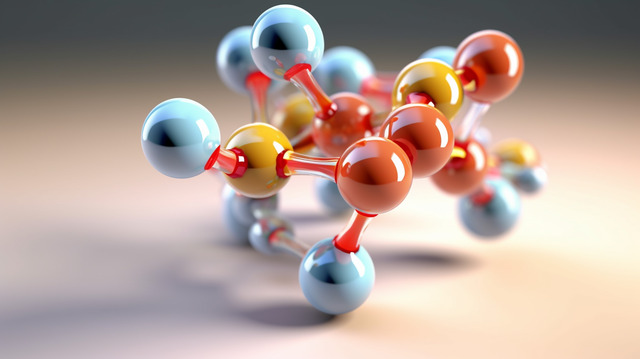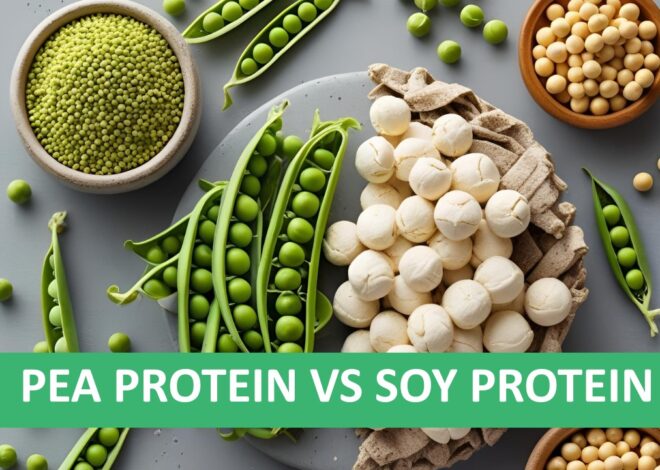
The Secret Power of Amino Acids for Better Workouts
When it comes to building proteins, the body relies on amino acids, often called the building blocks of life. They are essential for vital processes like producing hormones and neurotransmitters. During intense training blocks or a strict diet phase, your body demands more of these powerful compounds. Consuming protein-rich foods like meat, fish, and soybeans ensures you’re meeting these needs. An amino acid supplement before workouts helps boost athletic performance and maintain lean tissue. It’s a simple way to stay energized and recover faster.
Amino Acids: The Workout Game-Changer You Need
Amino acids are essential for muscle repair and overall workout performance. The mix of essential, conditionally essential, and nonessential amino acids helps support your body during intense training. Whether you’re hitting the gym or pushing through a tough workout, the right supplements can make a huge impact. Amino acids, known as the building blocks of proteins, are compounds that play vital roles in muscle recovery, energy production, and overall health. By understanding how amino acids work in your body, you can optimize your fitness routine and ensure your muscles have the nutrients they need to perform at their best. Also read The Hidden Dangers of Artificial Flavors You Must Know
Why Do Amino Acids Matter For Your Workout?
Amino acids are crucial for your workout because they are the building blocks of proteins, essential for muscle growth and repair. They support vital processes like the production of hormones and neurotransmitters. During intense training blocks or diet phases, your body needs amino acids for Better Workouts and to maintain lean tissue and enhance athletic performance. They’re found in protein-rich foods like meat, fish, and soybeans, but supplements can provide a quick boost. By incorporating amino acids, you can improve muscle recovery, stamina, and overall performance, helping you reach your fitness goals faster and more effectively.
Understanding the concept of Amino Acid:
“Amino acids, the building blocks of proteins, are essential for vital functions like protein synthesis, enzyme production, and tissue repair. Comprising an amino group, carboxyl group, and unique side chain, they are classified as essential, non-essential, and conditional. Essential amino acids must be obtained through diet for optimal health.”

The Importance of Essential Amino Acids
- Amino acids are essential for maintaining and building muscle.
- The body has 20 different amino acids, with 9 being essential.
- Essential amino acids cannot be synthesized by the body, so they must be obtained from food or supplements.
- Including essential amino acids in your routine helps with muscle mass retention, especially during intense training.
- Pre workout and intra workout supplements provide the necessary amino acids to support performance.
- These supplements help you recover faster and keep energy levels up.
- The right balance of essential and nonessential amino acids is key for improved results and recovery during strength or endurance training.
How Many Amino Acids Are There?
The human body relies on 20 amino acids for growth and proper functioning. Of these, nine are essential, meaning they cannot be produced by the body and must be obtained through diet or supplements. Among the nine Essential Amino Acids (EAAs), three are Branched-Chain Amino Acids (BCAAs): leucine, isoleucine, and valine. In the broader perspective there are three types of Amino Acids:
- Essential Amino Acids
- Non-Essential Amino Acids
- Conditionally Essential Amino Acids
Essential Amino Acids
Amino acids are organic compounds made of nitrogen, carbon, hydrogen, and oxygen. Your body needs 20 amino acids to grow and function properly, but only 9 are essential: histidine, isoleucine, leucine, lysine, methionine, phenylalanine, threonine, tryptophan, and valine.
Unlike nonessential amino acids, which your body can make, you must obtain essential amino acids through your diet to support health and overall well-being. Following are types of Essential Amino Acids
BCAA (valine, leucine, and isoleucine)
BCAAs, which include valine, leucine, and isoleucine, are essential amino acids with a branch-like molecular structure. These BCAAs play a critical role in building and restoring muscles. I’ve noticed that after my workouts, leucine helps with post-workout recovery by activating Muscle Protein Synthesis. This process helps convert amino acids into skeletal muscle tissue for better recovery and growth.
Lysine
Other essential amino acids like lysine support tissue repair and boost immunity, while threonine supports overall body function.
Threonine
Threonine strengthens the immune system, cardiovascular system, and central nervous system, while also promoting strong bones and tooth enamel.
Phenylalanine:
Phenylalanine, a precursor to tyrosine, is important for mood and cognitive function, making these EAAs essential for recovery and performance.
Methionine
Methionine is a critical amino acid that helps create various essential substances for the body. It plays a vital role in regulating metabolic and digestive processes, ensuring your systems work efficiently.
Histidine:
Histidine, another essential amino acid, is essential for producing histamine, a chemical that regulates immune and physiological responses.
Tryptophan
Meanwhile, tryptophan supports the body by helping produce melatonin and serotonin, which are key for mood balance and sleep regulation
Non-Essential Amino Acids and Their Functions
Non-essential amino acids are those your body can produce naturally, but they still play vital roles in maintaining health. Following are its important types of Non-Essential Amino Acids:

Alanine
Alanine plays a key role in removing toxins from the body and delivering energy to your muscles and central nervous system. This makes it an important amino acid for maintaining performance during physical activity.
Arginine
Arginine helps regulate blood pressure, balance hormones, and supports the development of healthy tissue.
Asparagine
Similarly, asparagine contributes to healthy brain cells and a functioning central nervous system, promoting overall well-being.
Aspartic acid
Aspartic acid aids in synthesizing other amino acids and plays an essential role in the enzymes that drive critical chemical reactions in your body.
Cysteine
Cysteine is vital for stimulating collagen production, which supports the health of your hair, skin, and nails. It is also a key component of the antioxidant glutathione, enhancing your body’s defense system.
Glutamine
Glutamine is the most abundant amino acid in the body, playing a role in digestive, brain, and immune functions.
Glutamate
Additionally, glutamate acts as a neurotransmitter in the central nervous system, providing essential energy to the brain for optimal function.
Glycine
Glycine, a non-essential amino acid, is critical for hearing, vision, and movement. It aids in producing collagen for restoring tissue and supports digestion.
Proline
Proline ensures skin and tissue repair, especially after soft tissue injuries, while helping to regulate blood pressure.
Serine
Meanwhile, serine enhances muscle metabolism, immune health, and mood regulation.
Tyrosine
Lastly, tyrosine aids in protein synthesis, producing thyroid hormones, and creating neurotransmitters that combat stress and improve mood.
Conditionally Essential Amino Acids
Nonessential amino acids can become conditionally essential under specific conditions like illness, pregnancy, infancy, or trauma. Following are its important types:
- Arginine: Usually nonessential, but during healing from injuries or diseases like cancer, production may not meet the body’s demands.
- Arginine supplements: These supplements are often taken in such cases to support recovery.
- Glycine and arginine: They are particularly important during pregnancy, promoting the health of both the pregnant person and the fetus.
EAAs vs BCAAs – Choosing the Right Product
Essential amino acids like valine, leucine, and isoleucine are crucial for muscle repair and growth. These amino acids, known as branch chain amino acids (BCAAs), play an important role in stimulating muscle growth and protecting muscle mass during intense training. I have found that including BCAAs in my routine has boosted muscle gain and helped me perform better, especially in the middle of a diet phase.
For a complete experience, PhD All Day EAA contains the 3 BCAAs along with 6 other essential amino acids, which the body cannot produce on its own. This supplement helps me stay energized and recover faster after workouts.
Plus, it comes in refreshing flavors like
- Tropical
- Mojito
- Sour apple

- Gummy bear

making it an easy addition to your diet any time of the day.
Top 10 Amino Acids Benefits for Workout Performance:
Amino acids are crucial for improving workout performance and supporting muscle recovery. Foods rich in BCAAs can also contribute to amino acids for Better Workouts like whey protein, boost Muscle Protein Synthesis (MPS). Leucine, a key BCAA, directly contributes to MPS and is abundant in complete proteins. Supplementing with high levels of BCAAs before or after your workout ensures effective recovery and optimal results. Amino acids for Better Workouts can be ultimate purpose to have it.

1.Muscle Gain
Amino acids are vital for muscle gain, as your body cannot produce EAAs. They aid in growth, retention, and repair after training. Consuming an EAA or BCAA supplement ensures the building blocks needed for muscle growth.
2.Training Endurance
Additionally, these supplements enhance training endurance by altering how your body uses fuel sources. BCAAs help extend training time before tapping into glycogen stores, allowing for improved performance.
3.Fat-burning
BCAA supplements protect glycogen stores, making your body turn to fat as a fuel source. This fat-burning effect, combined with muscle protection, supports body recompositing as Amino acids for Better Workouts .
4.Cognitive energy
Additionally, amino acids like tryptophan help reduce mental fatigue during tough workouts by increasing serotonin levels, enabling you to handle higher RPE.
5.Training performance
For training performance, BCAAs provide energy, reduce RPE, and prevent catabolism. They enhance muscle protein synthesis, reduce soreness, and improve recovery. Adding supplements like PhD All Day EAA or Plant BCAA to your nutrition can make a noticeable difference.
6.Decreasing Muscle Soreness.
Research highlights that BCAAs, particularly leucine-rich ones, help in decreasing muscle soreness. A study observed young men over four days following acute lower body resistance exercise. Those who took BCAA supplements experienced less soreness compared to the placebo group, showcasing their role in efficient recovery.
7.Muscle growth and recovery
Ingesting BCAAs after your workout boosts Muscle Protein Synthesis, with leucine being the key amino acid for muscle growth and recovery. Whey protein should be used as Amino acids for Better Workouts , rich in BCAAs, provides the high levels of leucine necessary for this process.

8.Improve physical performance
Moreover, studies show that BCAAs improve physical performance. A study on soccer players revealed that BCAAs enhanced response time and psychomotor performance. Similarly, recreational cyclists experienced better trial times and reported less fatigue after exertion.
9.May help with mood:
Tryptophan is essential for serotonin production, a neurotransmitter that regulates mood, sleep, and behaviors. Low serotonin levels are linked to depression and sleep issues. Studies show that taking tryptophan supplements may help reduce anxiety and enhance positive mood in healthy individuals.
10. Wound healing and surgery
Amino acid supplements also play a vital role in wound healing and recovery post-surgery. Research suggests that people with fractures or undergoing surgery who take conditionally essential amino acids experience fewer complications and lower death rates. Additionally, BCAAs may reduce postoperative complications in cancer patients and help maintain muscle volume in older adults recovering from knee surgery
When Should You Take Them for Optimal Results?
You can take amino acids either before or after your workout, depending on your desired outcome. Consuming amino acids pre-workout enhances exercise performance and reduces fatigue.
Taking BCAAs post-workout, particularly from whey protein rich in leucine, can accelerate your body’s recovery process, decrease soreness, and promote muscle growth and repair. To maximize these benefits, try a protein shake like Ascent’s Strawberry Whey Protein Powder after your workout.
Food Sources and Recommended Intake of Essential Amino Acids
Since your body cannot synthesize essential amino acids (EAAs), it’s crucial to obtain them through your diet. Fortunately, many foods are rich in essential amino acids, making it simple to meet your daily requirements with a balanced diet.
Here are the daily recommended intakes for each essential amino acid, according to the World Health Organization (WHO), based on body weight per 2.2 lb (1 kg):
- Histidine: 10 mg
- Isoleucine: 20 mg
- Leucine: 39 mg
- Lysine: 30 mg
- Methionine: 10.4 mg
- Phenylalanine (with tyrosine): 25 mg
- Threonine: 15 mg
- Tryptophan: 4 mg
- Valine: 26 mg
To calculate your daily intake, multiply these values by your weight in kilograms. For example, someone weighing 60 kg (132 lb) needs 1,200 mg (1.2 g) of isoleucine daily.
Food Sources of Essential Amino Acids
Complete proteins are foods that contain all nine essential amino acids. These include:
- Meat
- Seafood
- Poultry
- Eggs
- Dairy products
Plant-based sources like soy and pea protein are also complete proteins.
However, many plant-based protein sources, such as beans, nuts, and certain grains, are considered incomplete proteins because they lack one or more essential amino acids.
Ensuring Adequate Protein on a Plant-Based Diet
If you follow a plant-based diet, you can still meet your essential amino acid needs by consuming a variety of plant proteins throughout the day. Combining foods such as:
- Beans
- Nuts
- Seeds
- Whole grains
- Vegetables
This ensures you get all nine essential amino acids, even without animal-based products in your diet.
How to Supplement with Essential Amino Acids?
Most people obtain adequate essential amino acids through their diet. However, supplementation may offer additional benefits, particularly for specific groups like athletes or those seeking targeted health improvements.
Benefits of Supplementation
- For Athletes: Research shows that taking up to 115.6 mg per pound (255 mg per kg) of body weight in BCAAs daily can reduce muscle soreness after exercise.
- For Mood Support: Supplements like tryptophan (0.14–3 grams per day) have been shown to improve mood in healthy individuals.
Considerations for Supplementation
- Dosing depends on the amino acid and your specific health or fitness goals.
- Amino acid supplements are generally safe but may not be necessary if you consume sufficient protein.
Consult a Professional
Before starting a supplement, speak with a healthcare professional or a registered dietitian. They can:
- Recommend appropriate dosing based on your goals.
- Help you select high-quality supplements from reputable brands tested by third-party organizations.
While supplements may offer added benefits, prioritizing a balanced diet with sufficient protein is often the best approach for meeting your amino acid needs.
FAQs (Frequently Asked Questions):
1. What are amino acids, and why are they important for workouts?
Amino acids are the building blocks of proteins that play a key role in muscle growth, repair, and recovery. They support energy production and reduce fatigue, making them vital for better workout performance.
2. What’s the difference between essential and nonessential amino acids?
Essential amino acids (EAAs) cannot be made by the body and must be obtained through diet or supplements. Nonessential amino acids can be synthesized by the body but may become conditionally essential during illness, trauma, or intense physical activity.
3. How do BCAAs differ from other amino acids?
Branched-Chain Amino Acids (BCAAs), which include leucine, isoleucine, and valine, are a type of EAA. They are particularly effective for muscle repair, reducing soreness, and enhancing endurance.
4. Should I take amino acid supplements before or after a workout?
Taking amino acids before a workout boosts energy, reduces fatigue, and enhances performance. Post-workout supplementation aids in muscle recovery, reduces soreness, and promotes protein synthesis for muscle growth.
5. Can amino acids help with fat loss?
Yes, amino acids like BCAAs help preserve glycogen stores, prompting the body to use fat as fuel during workouts. This supports fat burning while protecting muscle mass.
6. What foods are rich in amino acids?
Animal-based sources like chicken, eggs, and fish, and plant-based options like soy, quinoa, and legumes, provide essential amino acids. Supplements are an easy way to ensure you get enough.
7. Are amino acid supplements safe?
When taken as recommended, amino acid supplements are safe for most people. However, consult a healthcare provider if you have specific health concerns or conditions.
8. Do amino acids improve cognitive function during workouts?
Yes, amino acids like tryptophan, which influences serotonin levels, can reduce mental fatigue and enhance focus during intense physical activities.
Conclusion:
Amino acids are essential for muscle growth, recovery, and overall workout performance. Whether through diet or supplements, incorporating these powerful compounds into your fitness routine boosts endurance, reduces fatigue, and supports fat loss. Unlock their potential to elevate your workouts, promote faster recovery, and achieve your fitness goals effectively. Besides supporting vital bodily functions, some amino acids help prevent muscle loss, aid in recovery after surgery, and improve mood, sleep, and athletic performance. These amino acids can be found in various animal-based foods and plant-based foods, ensuring most people can meet their daily requirements by following a healthy, balanced diet. If needed, you can also take essential amino acid supplements to meet your needs.








